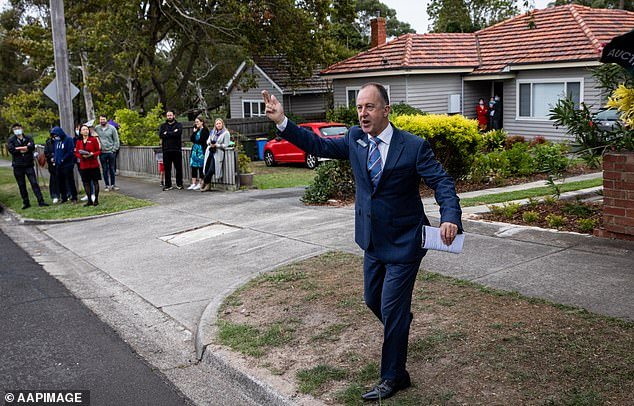Imagine how you would feel as a property investor if, having scrimped and saved to buy a unit as an investment, the government then required you to have it formally valued every year, at your own expense of course.
Then, in the year where it is assessed to have increased in value, you’re taxed 30 per cent on that increase and are forced to pay the tax debt straight away, even if you aren’t selling the asset.
In other words, the only way you can pay that tax is with spare money you have lying around, or by selling the said property to finance the tax bill when you don’t want to.
You’d find it all pretty outrageous.
Well that is how the government’s plans work to tax unrealised superannuation gains. You pay the tax on the principal asset – such as a house, bought in a super fund – and if you can’t pay for it, you must sell the asset to cover the tax.
No wonder tax professionals think it is a poorly drafted tax. No wonder the nation’s two biggest accounting bodies – Chartered Accountants ANZ and Certified Practising Accountants – have described the new rules as ‘poorly designed’.
Paying tax on something you are yet to realise a profit from is bad policy, plain and simple. It doesn’t pass the fairness test at all.
Labor wants to find ways of taxing higher income and equity earners and owners more. Jim Chalmers is seeking to plug holes in his budget, because he is spending beyond the nation’s means.

Imagine for a moment how you would feel as a property investor if, having scrimped and saved to buy a unit as an investment, the government then required you to have it formally valued every year, at your own expense of course.
But if anyone thinks the new super tax is limited to a wealthy few they need to think again. Because it’s not indexed at $3million, over time more and more Australians will be forced to pay taxes on unrealised gains in their super accounts.
And, importantly, the more Australians who get hit by this unfair and badly designed tax, the harder they will find it to pay the bill.
Wealthy people often have monies elsewhere that they can draw on to pay taxes on assets they haven’t yet sold. They have bigger investment portfolios.
But over time, without indexation, when this new tax starts to hit the rest of us, a greater percentage of those affected by it will be forced to sell from their super to cover the tax.
And if these design features weren’t flawed enough, you can’t even cover the tax hit on a yearly increase with on paper losses in other years. If the asset goes down, too bad, you still have to pay the tax in the year it went up on paper.
It’s ridiculous.
Just to be clear, I’m not sure I’ll ever be required to pay this tax, unless the Greens get their way and lower the threshold below $3m. So my complaints about its design aren’t built on self-interest.
Guess who else won’t have to pay this tax? Many state politicians, bureaucrats and judges, who are constitutionally exempt from having to do so. Their super payments are protected from what Labor is doing.
How’s that for fairness?

Modelling shows Gen Z will be stung by the tax when they reach retirement age as it will not be indexed (stock image)
I’m all for a serious debate about wider tax reform, and within that debate I’m open minded about a tax mix that might include inheritance taxes, a higher and broader GST, taxes on the family home and limiting negative gearing. Even changes to capital gains taxes are worth a look.
As long as the government is also open minded about cutting other inefficient taxes, let’s have the debate. It’s overdue.
The last serious tax reform to take place was at the turn of the century when the GST was introduced by the Howard government.
Our tax and spend system is now broken and in need of repair. But the piecemeal application of new taxes, like Labor’s super slug, usually results in poorly drafted changes.
The discussion needs to be more holistic and it needs to involve proper consultation and debate with tax experts. That didn’t happen with the incoming super tax.
Labor had the idea, it told the tax experts about it, and they replied that the design was poor and in need of redrafting. That didn’t happen, of course.
Labor won an election (not focused on this issue) so it is now claiming a mandate to legislate it. By definition it does have a mandate, because it won the election comfortably, having flagged its intentions on super.
But in the pantheon of election mandates, this isn’t a particularly strong one. The victory on election day might have been emphatic, but the reasons were unrelated to this badly designed tax.
That said, it was a failure of the opposition not to make this a focal point during the campaign, the same way the Coalition did so with Bill Shorten’s franking credits policy ahead of the 2019 election.
This new tax on unrealised gains will be legislated when parliament returns at the end of July. It will be interesting to see if the opposition can get its act together and expose the faults inherent within it – using the issue to take some shine off the re-elected Labor government.
Don’t hold your breath.

